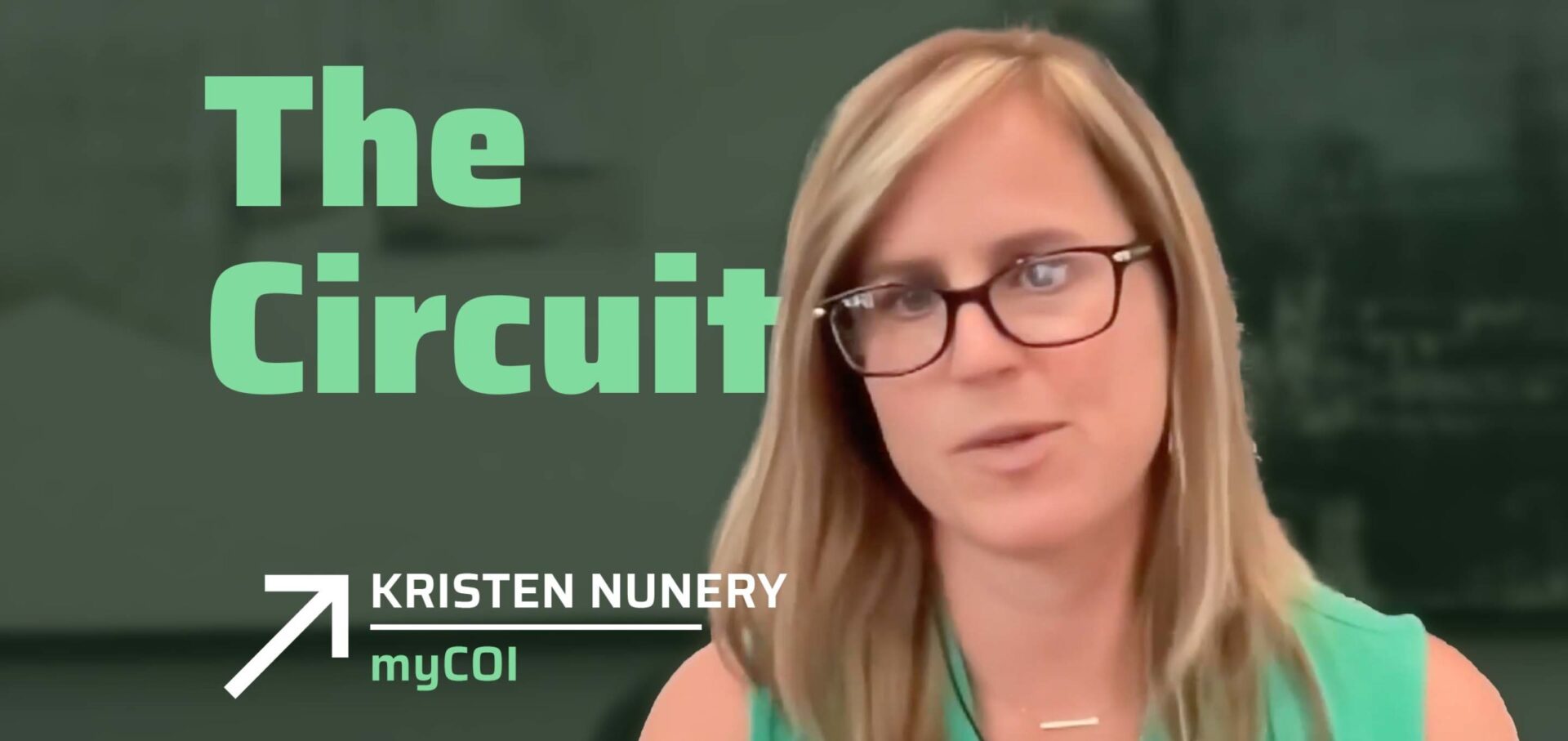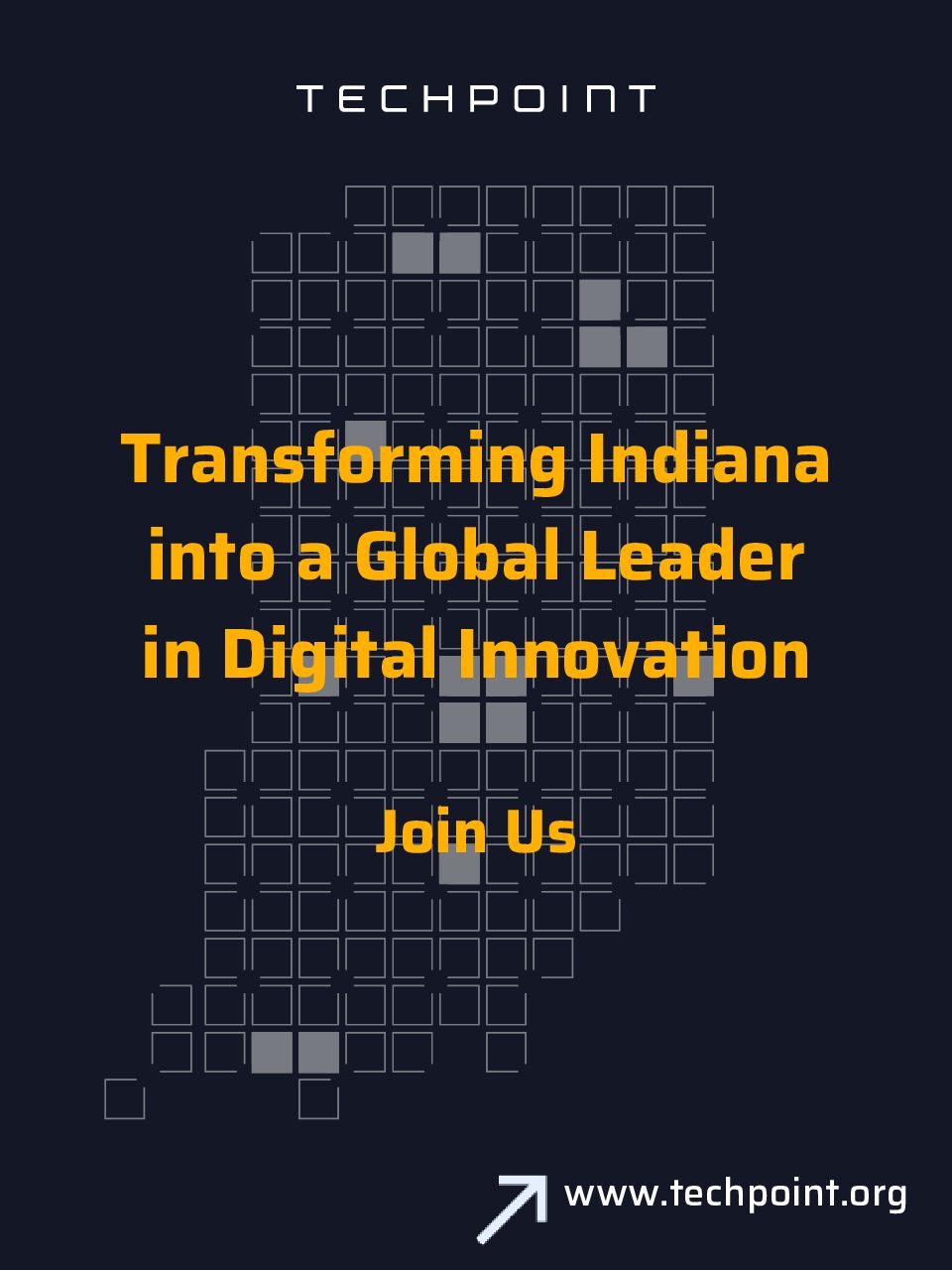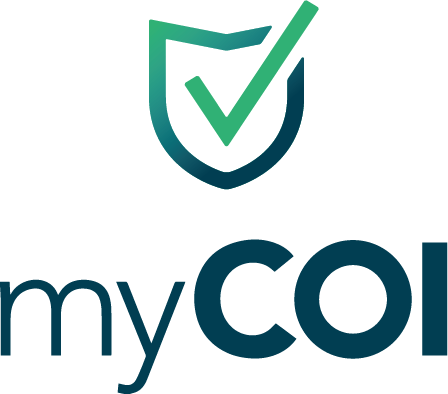Kristen Nunery | myCOI: An RV on the Road to Exceptional Employer
Today we talk to Kristen Nunery, founder and CEO at myCOI. myCOI provides companies the ability to automate insurance certificate requests and compliance. Kristen talks about the inspiration for founding the company, how they have built an award winning employee culture, and what’s on the horizon for myCOI.
Roger Shuman
Hello, Kristen.
Kristen Nunery
Hey, Roger. How are you?
Roger Shuman
Good, great to have you here. Definitely want to jump into your company and talk about a little bit. So, first off for those not familiar with your company’s name, it’s pronounced myCOI and not myCOI. You’re not involved with big fancy goldfish, correct?
Kristen Nunery
<laugh> Oh, I love it. Yep. You’re correct. <laugh> No myCOI.
Roger Shuman
Yeah. So, again, so for those not to know what is, what’s the COI stand for?
Kristen Nunery
Yeah. Certificate of insurance.
Roger Shuman
Yep. So can you describe then myCOI at, at a high level? I mean, you better be able to, I guess, right. But will you, uh, describe myCOI at a high level, what the company does and what, what customers you serve?
Kristen Nunery
Yeah. You bet. So businesses hire us to make sure that any other business they hire, whether that’s a vendor or a supplier or contractor, or maybe it’s a tenant they’re signing a lease with. we make sure that all those third parties have the insurance that they’re supposed to have so that when a rainy day happens and things go wrong, our customers are protected and all those third parties are protected from, uh, what could be a very disruptive scenario.
Roger Shuman
Okay. So taking you back to 2009, what was the process for certificates of insurance before myCOI came to market?
Kristen Nunery
Yeah. So typical process would be that a company would do this all manually, all in house, a ton of paper, a ton of emails, a ton of phone calls, cause literally they, you know, they hire as an example, a general contractor hires a subcontractor, and they’re asking for that piece of paper, they’re checking to see if it meets the requirements. Usually doesn’t, so they’re like on the phone, they’re writing emails, right. Which chase me down, doing it all over again when that policy expires. And so it’s just this headache manual labor intensive process.
Roger Shuman
Hmm. So, were there specific verticals that myCOI targeted initially? And, and how has your audience expanded in the last 14 years?
Kristen Nunery
Yeah, you know, we’ve always been sort of vertical agnostic, but we, we really got off the ground with construction in real estate. Those were two verticals that are very complex from an insurance perspective and high quantity with how many certificates of insurance they need to be managing on an annual basis and that it kind of fit our sweet spot, being able to handle those complex areas. So we really establish ourselves very well in those two industries. but actually we have customers in just about every major industry out there. So, uh, you know, manufacturing, government, franchise energy, I mean, you name it and we can support customers there.
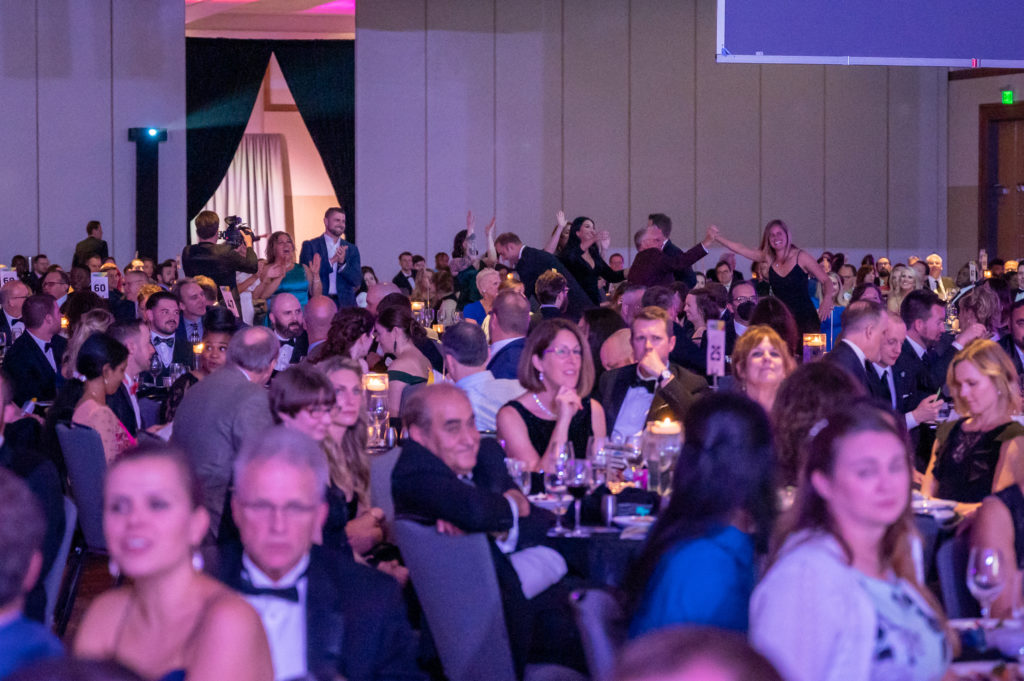
The Origins of myCOI.
Roger Shuman
So you’ve talked previously that, your inspiration for founding myCOI was driven by an experience that you had in high school. can you talk a little bit about that event and, and how, how the idea for the company evolved from, from that?
Kristen Nunery
Yeah. Yeah. So, when I was in high school, I was a junior in high school in our house, burned down. It was October, I will never ever obviously ever forget it, but it was basically a total loss. So it was a, you know, buy toiletries, buy clothes, find a place to live. I was actually the only family member in town when that happened, so watched it burn that night, had, you know, communicated with the family around that. And, ultimately the type of insurance policy, my parents had, turned into a three year battle with the insurance carrier before the claim was paid out. And it really did not need to be that way. But they just were in that situation where they didn’t know, they didn’t know, and the policy they broke or had them with, really did not set them up well to handle this situation.
Kristen Nunery
So we went through a lot of challenges during that window of time and just kinda lived through, you know, some tough chapters. So what we do today is, uh, you know, our purpose is to protect people from living through the disruption that, that I personally live through. Right. And we just do it and we apply it in the business world. So our goal is to make sure that the people that work for our customers and all those third parties, which oftentimes are small businesses, that, that they are protected. You know, they work hard every single day doing what they do and what their purpose is. And our goal is to make sure that when an accident happens, that, you know, that’s part of life accidents are gonna happen. but it doesn’t cause that level of disruption and really, even some of the small businesses that we, you know, track those third parties, they could go under without the right insurance. And so it’s a really meaningful thing that, that our entire team has rallied behind. It’s really, truly the purpose of our business and how we make our decisions, why we do what we do every day.
Roger Shuman
So, I I’ve heard that myCOI wasn’t your first attempt at entrepreneurship. So in college you had a stock photography agency and then after graduation, you flipped houses for a living. what are some of the lessons learned from each of these experiences and, and how have they contributed to the success of myCOI?
Kristen Nunery
Yeah, I’m definitely an entrepreneur at heart. You know, I knew I wanted to be an entrepreneur from a pretty young age. And so that first one stock photography agency, you know, I think with that business, I got into that. Photography’s a passion of mine and I got into that because it was really something I enjoyed doing. the passion behind it. I love the entrepreneurship part of it, some of the, excitement that comes with that, the challenges that come with that, creating something new. you know, I desired the lifestyle. I felt like it could deliver. And, but I, I missed one really important lesson in that business. And, you know, it’s really truly understanding where the industry is and its maturity and where the competition is and what it looks like, you know, what, you know, what market opportunity really exists.
Kristen Nunery
That was an industry that really was very saturated already, and primarily through two very large corporations. So trying to have a startup in more of a, a niche area, you know, how had its challenges for sure. And so I think just being wiser around evaluating, you know, where to spend time and energy and really understanding where the market is, where competition is and the, how much that should influence or impact how to approach the business and whether or not to even go about starting a business in that area. and then I would say, you know, from the real estate perspective, I loved, what I did there flipping houses and had rentals and really enjoyed that. And my, the whole reason why I ended up exiting that was, uh, when the housing industry crashed in oh eight. And I look back on that today and I think about how so many businesses really succeed by how they, how they approach the challenging times and the tough times, right.
Kristen Nunery
The ones that figure out, how can you lean in. Yeah. And everybody else is kind of going into, uh, hibernation mode, protection mode, kind of getting cautious, you know, how, how can you really take advantage in those scenarios? So I think back to that now, and the investors that, decisions people made in that window of time when the economy, the housing economy was going south, there really was a lot of opportunity that exist within that. So I think that’s a, that’s definitely a lesson learned that I’ve taken with me into this business and, you know, anytime we’re faced with friction or challenging times, really trying to think about, you know, how can you, how can you lean in, how can you really take advantage of this time and, double down.
Roger Shuman
Yep. So, I mean, when you were flipping houses, I mean, was there an obvious connection to construction in myCOI at that time? Had you made that connection yet? Or did that come further down the road?
Kristen Nunery
You know, I understood it, because they’re just hiring contractors to help flip the houses. It was on a much smaller scale, uh, what I was doing compared to what our customers and the size customers we have today and what they do, but I definitely understood it. And that was, that was a factor in wanting to be able to start this business and recognizing what the need was.
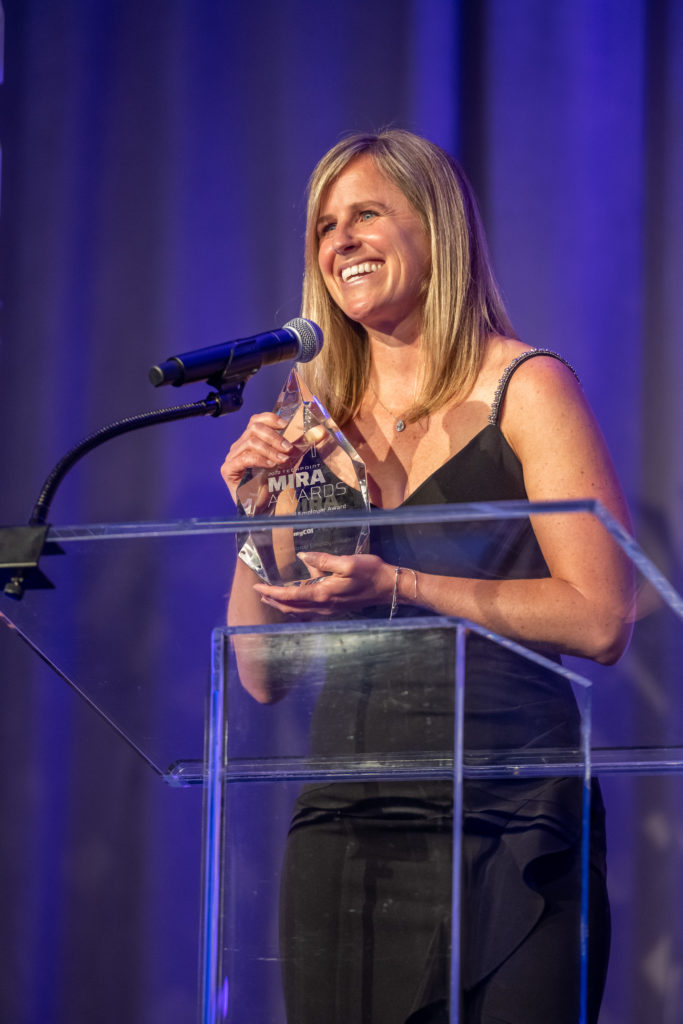
The Award Winning Culture of myCOI.
Roger Shuman
Yeah. So the past few years have been a series of headlines from myCOI you’ve secured funding. You were named among IBJ’s 40 Under 40… Congratulations. You received awards for being a top employer from Powdekeg, IndyStar, and TechPoint at the Mira Awards. What do you attribute all of the recent growth and success to?
Kristen Nunery
Yeah. Yeah. I’m very grateful for all of those items. When I reflect on kind of the combination of them, you know, I, I’m just, I’m a huge believer that businesses are successful because of the people within them. You know, no business achieves what they wanna achieve or is able to have the success they wanna have or the culture they wanna have, delivered to customers the way they want to, without having, the people within that team, really being able to drive that. So I guess when I look back at, you know, being able to have the different honors that we’ve had and to be able to have some of the successes we’ve had, I think so much of that is, uh, our team and how we’ve built our team and how we approach hiring, how we approach, leading the team, how we approach our culture and, and really also within that, having a team that’s very connected to our purpose, uh, and being very much a purpose driven company.
Roger Shuman
What is it about myCOI’s culture then that has led to all these awards as an employer? Is it, is it leadership, training, commitment to diversity, four-day workweek? You might even wanna talk about that, but what do you hear from your employees that seems to be resonating?
Kristen Nunery
Yeah, you know, I think probably the number one thing is listening intently. We have a theme within the company of listen and deliver, and we do that intentionally with our customers of being able to really listen with intent and understanding them to be able to deliver, but we are just as committed to doing that internally with our own team. And so I think many of the decisions we’ve made and how we’ve gone about building the team and, the culture is what it is today because, uh, we, we really genuinely listen to the team and what their desires are, what their needs are, uh, and put very intentional effort on day to day basis to deliver back on whatever those needs may be. So, you know, all the different things we’ve chosen to do along the way of in some form or fashion come from of what we’ve heard from the team.
Kristen Nunery
And so we’ve, you know, all the things that you mentioned are all things that we’ve done because of that. So sending, uh, our leaders through, we did a yearlong leadership training course, it was phenomenal. you know, we made the decision to go to a four day work week, but that actually, uh, we did that as a test run at first. And it was right at the beginning of COVID. And we were hearing that our team was really struggling with, rest and a big part of that, we felt like was, it was hard for people to have the, the wall between work and home life when they were working from home for the first time. And it all just sort of blended together. And so, it was hard to kind of have the space for both and for people to be able to figure out how to go about that when we were kind of early on in the work from home days.
Kristen Nunery
So we ran it as a test case and said, let’s, let’s go a month on a four-day workweek. Let’s see how, how that supports the team. Being able to really, truly shut down and disconnect and have that extra we Fridays is our day off. So have Fridays in the long weekend to be able to disconnect and see how that influences the teams, we as an engagement survey. And so how rest would show up on that survey and it worked so we continued it and continued it and eventually made it permanent. but all of those things, I guess I come back to, it was, you know our very, intentional effort to listen to our team.
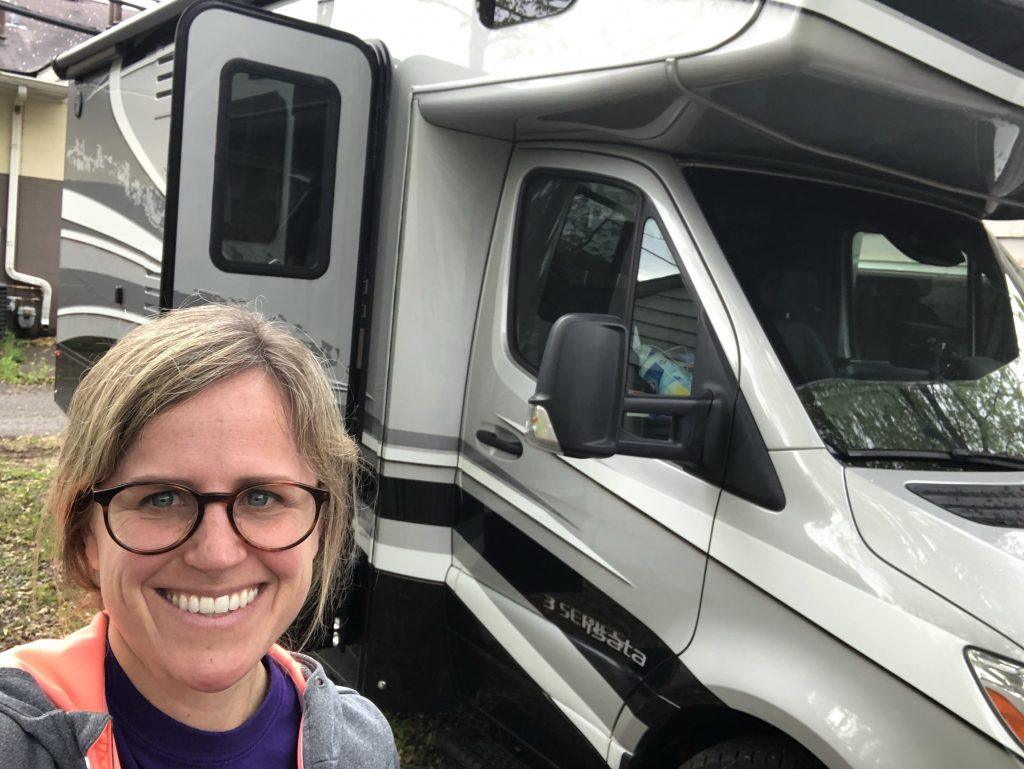
COVID, Bears, and Adventures Working from an RV.
Roger Shuman
I mean, I know I can definitely think most of us who’ve had any experience working from home the last few years. Certainly get that there’s it’s like, when do you stop working when you’re, when you’re working in an office, usually it’s when you get in a car and you go home, but if you’re sitting at home, like I, I could be working, oh my gosh, my computer’s right in front of me. So certainly understand. So something I found to be a great example of myCOI’s culture and you’re leading by example was in 2020, you actually spent a portion of the year working remotely from an RV, traveling across the country. Can you talk a little bit about that experience and the impact that it or… the effect that it had on your employees? And do you see anyone taking similar trips?
Kristen Nunery
Yeah. Oh my goodness. Yeah. So first year of COVID, I spent, six months on the road and leading this company while in the RV. And I, that happened as sitting at home early on, you know, when COVID first started and I was on Facebook and I saw a friend post and she was on the road in an RV that her husband owned and that he would travel for his business with it. And I always, you know, it was a bucket list item for me to do, you know, live the RV life for a little while. And I just never imagined that being anytime in the near future. And I was sitting there realizing, wait a second, if there’s ever gonna be a time, I can do it, like sitting here at my dining room table.
Kristen Nunery
And you know, I don’t have kids, so I didn’t have that added element to it and was like, why not? I’m gonna go do this now. And at that point it was, we were all still talking about, will we be back in the office in two months? You know, I don’t know. And so literally that week I got on the road, in an RV. And so, you know, I think that I had some fears in doing it. I had some concerns around just so what would the perception be? And, you know, what would our board’s perception be of that and investors’ perception. But ultimately just decided to go ahead and do it. And it’s really, it was an opportunity to lead by example, to help the team look for opportunities in the situation we are in. Right? Like kind of back to that, how can you double down or how can you lean in when you’re faced with, friction?
Kristen Nunery
And so it was a new scenario. People were really struggling with how to handle it. There were a lot of emotional, mental challenges people were facing, and it just was this opportunity to say, Hey, it’s find something to focus in on find the positive in this situation. And it’s okay to go do it. And I think it was a factor in kind of helping our team and, our culture and our engagement during that timeframe. Because I think it just sort of gave permission for people to be able to do other things as well. And and it was a very unique experience. I always call it my trip of extremes. I got to see some just beautiful places in, in the us.
Roger Shuman
Yep. Where all did you go? And like what was, I could just imagine, what was some of the more interesting meetings that you had where you had a backdrop behind you that was not your normal dining room table?
Kristen Nunery
Oh my gosh. So the first three months I spent like on the Northwest quadrant of the country. And so I was in a lot of very remote mountain areas and I was what’s called boondocking, which basically means you’re not hooked up to utilities or anything. You’re just kinda out in the middle of a national forest land. Right? And so I mean I had some of the most majestic places where I would be holding meetings and sitting outside on my camping chair with, you know, mountains in the background. But I think my, my most interesting story of that was one day I actually was at campground this day. I went to Lake Tahoe and there are not as many places to boondock there. And so I had a campground and I was on a meeting. It was like end of the day, last meeting of the day.
Kristen Nunery
So I went outside to sit down like out, outside instead of in the RV and get the laptop up, get Zoom up and running. And all of a sudden my, I had two dogs and they’re both with me on this trip. And so they, they were outside on leashes and they just started barking like crazy. And I look up and there is a bear in my campground, like not the large campground, like in my campsite. And I threw my laptop up. So my teammates that were on that call will tell a story. Like they’re seeing the trees above me and the dogs who went crazy and hearing me wrestle around the background. But got the dogs back in the RV, bear ran away. That was probably the most entertaining one. <laugh>
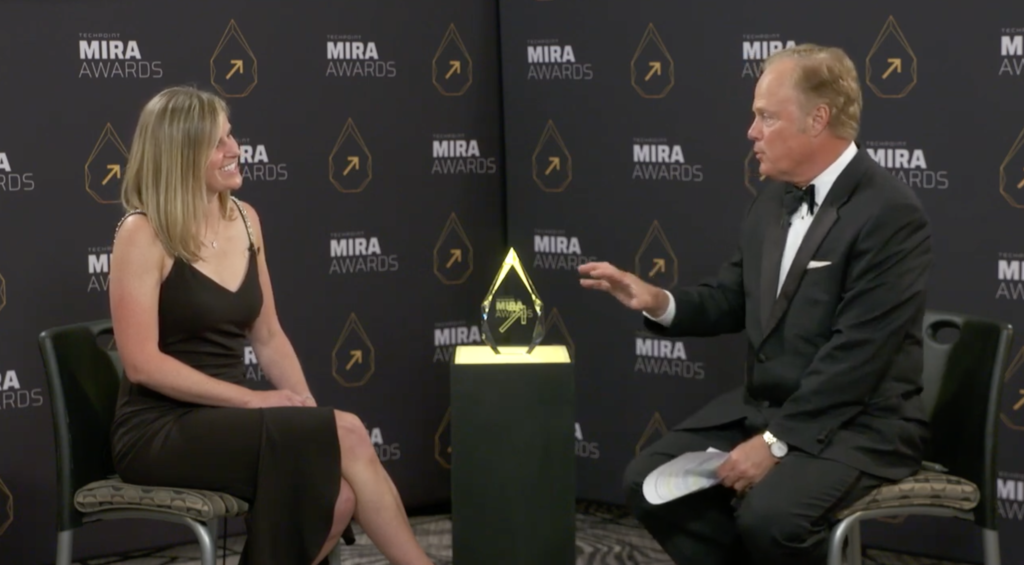
Four-day Workweeks and 100% Remote.
Roger Shuman
So considering the company culture experience that you’ve been running, which has had the most unexpected or surprising outcome compared to what you thought or worried might happen before starting it?
Kristen Nunery
Hmm. Gosh, there’s a couple of different things that come to mind on that. and the four-day workweek, I already mentioned that one, but that, that definitely stands out. That’s, you know, almost seems like the opposite of what you would do to reach the goals you wanted to as a company or wanting a company that’s really dedicated, engaged, and focused and achieving, you know, the goals that we wanted, the velocity we wanted and to be able to say “hey, let’s move to a four-day workweek instead of a five-day” to, you know, get that, sort of maximum achievement. That was a suggestion around thinking about different ideas for rest and experimented with it. And it worked out, you know.
Kristen Nunery
Another one though is coming out of, oh, I get all my years mixed up here. But when, it was, people were starting to go back to the office and a lot of companies were moving to a hybrid schedule, some sort we had intended to do the same thing. In fact, we were about to have moved forward with that and sign on that. And we said, you know what, let’s send a survey to the team. Just one more time on some of the different thoughts that we have on how we’re gonna do this and how we’re gonna structure it. And that survey became really clear that, uh, it was a really bad idea for us to go back to the office at all. And so it was that survey that changed our, our decision on it and let go of the office completely and decided to stay 100% remote company. So we really thought people were ready to get back. And so I guess that was also another scenario where, we were surprised at what we got back from the team on that, but it changed our approach and we are still 100% remote today.
Roger Shuman
Do you have any sage advice for other employers or entrepreneurs on this subject of, you know, different things that you’ve tried and listening to your employees? And I mean, to some degree you probably have to make decisions that are the best decisions for the company that may, that may not be popular, but sounds like you’re really listening to what’s working best for your employees.
Kristen Nunery
You know, I guess I would say, listen intently and don’t be afraid to experiment. I feel like a lot of conversations I have with with other entrepreneurs or business owners or leaders in general, I feel like sometimes you sort of get stuck in a decision where we feel like it needs to be something permanent and, not really thinking about options for how we can make decisions that allow us to experiment or adapt, uh, as we learn more and as things adjust and as things change. So I guess that would be my encouragement is, you know, don’t be afraid to experiment think about how you can make decisions for the company and for the team that, can be something that allows you to start small and see how it goes and then know what to implement from there. So that we’re really, really always, we’re never gonna get it right all the time. We gotta, we gotta learn as we go. And so being able to really experiment allows us to figure out what’s gonna be best.
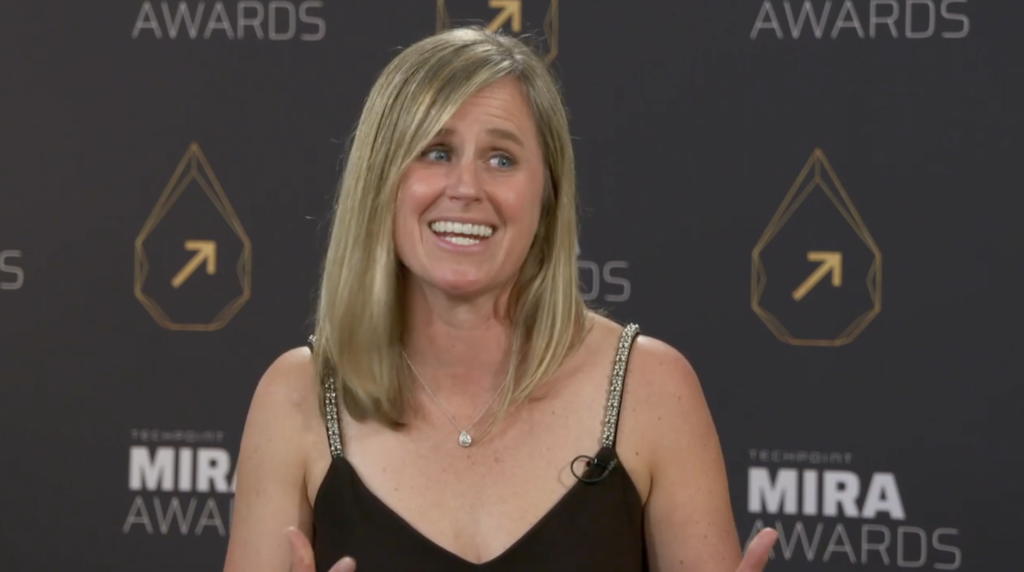
The Future of myCOI.
Roger Shuman
Yeah. So TechPoint, we are focus on the tech ecosystem in the state of Indiana. So this is kind of an Indiana podcast. What, what effect or how important is place. So being in Indiana to myCOI and how has it impacted your business?
Kristen Nunery
Yeah, yeah. So we have really enjoyed being in Indiana. I think for us, we’ve had a tremendous amount of support from the community in general and some of the larger stakeholders within that community. I’d put TechPoint, you know, definitely one of those, Elevate Ventures, for sure one of them, they’re a fantastic investor of ours and have supported us all along the way. But I just think that, you know, Indiana, it really is a community of people that, want to be able to help and support and want to be able to, you know, lift up the people around them and bring forward whatever they can. And so I think if we, are, are willing to seek that out and willing to be a part of that, there’s a tremendous amount of opportunity in Indiana to really get support and growing a business or starting a business and, and not just, you know, as the entrepreneur or for growing the business, but for other leaders, other teams, you know, there’s just a lot of different things out there for support within different functions of the, the business.
Kristen Nunery
And a lot of opportunity for networking as well and opportunity for doors to be opened. And I, you know, I’d also say just cost of living here being where it is, is really beneficial, you know, and there’s, there’s a lot of investors from all over the country that of course, intentionally look for businesses here and look for opportunities here. Right. And, yeah, it’s a wonderful thing to be able to take advantage of. So I’m just, I’m a fan. I enjoy having a business here. I think, the level support’s been incredible and very grateful for that.
Roger Shuman
So since you founded myCOI, you’ve grown now to more than a hundred employees and you’re across, I think over 13 states now. But during the 2022 year awards season, you indicated that you were pretty bullish on myCOI’s growth. What’s your vision for the future of myCOI?
Kristen Nunery
Yeah, I am very bullish on it and it kind of comes back to that lesson learned in stock photography. The industry we are in right now is at a place where the adoption, what we do is really gaining a lot of momentum and there’s a tremendous amount of market share opportunity for us to deliver what we do and kinda live out our purpose. And so we really feel like the timing is fantastic for us right now, and very excited for the next few years. There’s also just within the insurance industry. There’s, a lot of movement towards innovation and towards technology. And that in itself opens up a lot of opportunities for us as well, to deliver a solution to our customers that really couldn’t have been done 10 years ago. And, that’s really exciting for us. So we sort of look at this intersection of timing with the market, our purpose, and our strategy of how we’re going about it, where the industry is going as a whole.
Kristen Nunery
And, you know, for us, it is we wanna stay very dedicated and focus on the one thing that we do, and just be the absolute best at that. So that we are the market leader. We are today. We continue, you know, expect to be that as we continue forward and, excited for the opportunity they exist. So we just wanna continue to grow doing what we do and really wanna help support, protect people from, you know, back to living through what I live through. We don’t want them to go through it. And so we’re, we’re here to do that and excited for the future.
Roger Shuman
Kristen, thanks so much for spending some time with us today. And we continue to look forward to that growth that you expect.
Kristen Nunery
Thank you for having me Roger.

